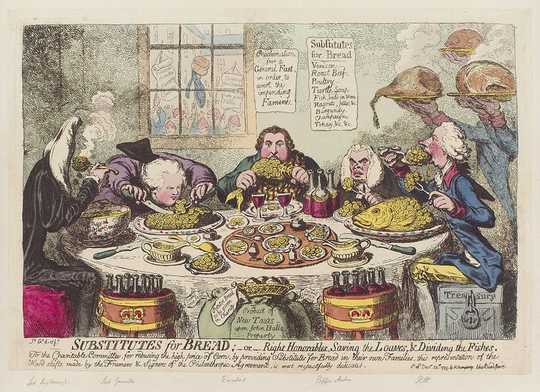
Are you who you eat? Photographee.eu/Shutterstock
Revered French gastronome Jean Brillat-Savarin coined the phrase: “Tell me what you eat, and I will tell you who you are”. He wasn’t wrong. If you’re someone who thinks about your food choices, its probably in terms of health or ethics. But they are also intimately connected with identity, class, and ideology.
Kosher and Halal foods are a signal of religious affiliation. Caviar and gold leaf hint at wealth. The enjoyment of wine has as much to do with what it’s served in as its taste.
But what of meat? Due to its cost, meat consumption in Western societies has been linked with higher status, power, wealth and masculinity for centuries.
In medieval England, peasant diets would be almost wholly vegetarian. Meat was the preserve of royal and aristocratic households, where the hunt became part of male rites of passage, but also power over the natural world. This gendered and class-based structuring of access to meat continued well into the second half of the 20th century, since the best cuts were reserved for the patriarch of the family.
Get The Latest By Email

Anyone for venison? James Gillray/Wikimedia Commons
In many ways, veganism challenges these traditions. Vegans, for instance, are more likely to be young and female than old and male. The lifestyle also challenges traditional norms of masculinity. And instead of the hedonistic consumption associated with the upper classes, veganism is associated with restraint and discipline.
Yet, this restraint comes with its own social implications. As our new research shows, plant-based diets come with burdens – and successfully navigating them can help vegans to promote an image of upward mobility in contemporary consumer society.
We first studied how veganism was represented in more than 2,000 articles in the UK media. Then we conducted 20 in-depth interviews with middle-class consumers who were either vegans or closely acquainted with vegans. We mapped how they perceived veganism, including its relationship to class and character. Analysing data from the interviews and the media together, we identified five key burdens associated with the vegan lifestyle, and the social signals that successfully navigating them sends.
Vegan burdens
The first burden relates to knowledge. Vegans generally need to be not only vigilant about ingredients, but able to unpack their meaning for animal welfare, climate change, sustainability, and personal health. The accomplished vegan therefore signals a wealth of knowledge in a society where educational attainment has high social value.
Financial wealth is useful too. Vegan products and replacement ingredients are often expensive, and not within every household’s budget. It is possible to eat vegan cheaply, but doing so costs time for a diet that is already time-intensive – both in terms of shopping and food preparation. Navigating these demands signals that you have at least a little money – or at least time – to spare, as well as efficiency and time management skills, which are desirable qualities in the world of work.
 Who am I? Allie Smith/Unsplash, CC BY-SA
Who am I? Allie Smith/Unsplash, CC BY-SA
Finally, veganism often requires fortitude and discipline – both to deny oneself short-term hedonistic pleasures in the commitment to ethical principles, and to fend off the typical perception of vegans as troublesome or challenging guests. Managing these emotional and social burdens signals resilience and goal-seeking behaviour in a competitive environment, and the likely presence of a strong social network support.
Crafting the vegan self
Consumers are rarely actively pursuing social goals when going vegan. But at a sociological level, it does present opportunities to communicate personal attributes that are considered useful in contemporary society: knowledgeable, disciplined, able to support oneself, but also able to form social connections. Rather than only engaging with food for pleasure, our respondents recognised that the challenges of veganism can be used to signal social status and, if originating from a lower socioeconomic class, an upward trajectory in one’s fortunes.
Of course, the ethical and environmental aspects are still – for many people – the major motivation to be vegan. But as other recent research of ours shows, thanks to recent celebrity uptake of the diet, veganism is no longer a purely moral movement at the periphery of society, but also a desirable lifestyle choice considered trendy in mainstream culture. Indeed, Beyoncé’s undertaking of a 22-day vegan challenge helped interest in veganism to explode – despite her wearing leather and fur to a restaurant during the challenge.
The ethos of veganism itself is an admirable and strongly held altruistic conviction among many of its practitioners – but it also plays an important role in curating your personal image. Perhaps Brillat-Savarin’s dictum should now read: “Tell me who you want to be and I will tell you what to eat!”![]()
About the Author
Thomas Robinson, Lecturer in Marketing at Cass Business School, City, University of London and Outi Lundahl, Assistant Professor of Marketing, University of Groningen
This article is republished from The Conversation under a Creative Commons license. Read the original article.
books_healthy_diet







